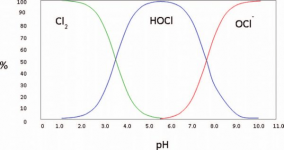Hi
This is how I found the interior of a PVC flex pipe connecting to the bottom of a skimmer:

It had a smooth interior surface when it was new, right?
In addition, the tubing was very brittle: I was able to break it in 2, by hand.
It's a 8 year old pool, with chlorine treatment, and water heated to around 30ºC (86ºF). Maximum temperature it ever had was probably 33ºC (91ºF)
What can cause this?
- Too much heat?
- Too much chlorine. At times the pool spent a few months without water circulation; and that tube was connected to a skimmer with the chlorine tabs.
- Subpar material/tubing?
Thanks!!
This is how I found the interior of a PVC flex pipe connecting to the bottom of a skimmer:

It had a smooth interior surface when it was new, right?
In addition, the tubing was very brittle: I was able to break it in 2, by hand.
It's a 8 year old pool, with chlorine treatment, and water heated to around 30ºC (86ºF). Maximum temperature it ever had was probably 33ºC (91ºF)
What can cause this?
- Too much heat?
- Too much chlorine. At times the pool spent a few months without water circulation; and that tube was connected to a skimmer with the chlorine tabs.
- Subpar material/tubing?
Thanks!!


